Japanese May Holiday - What is “Golden Week” and How is it Celebrated in Japan?
A Busy Week or a Moment for Reflection
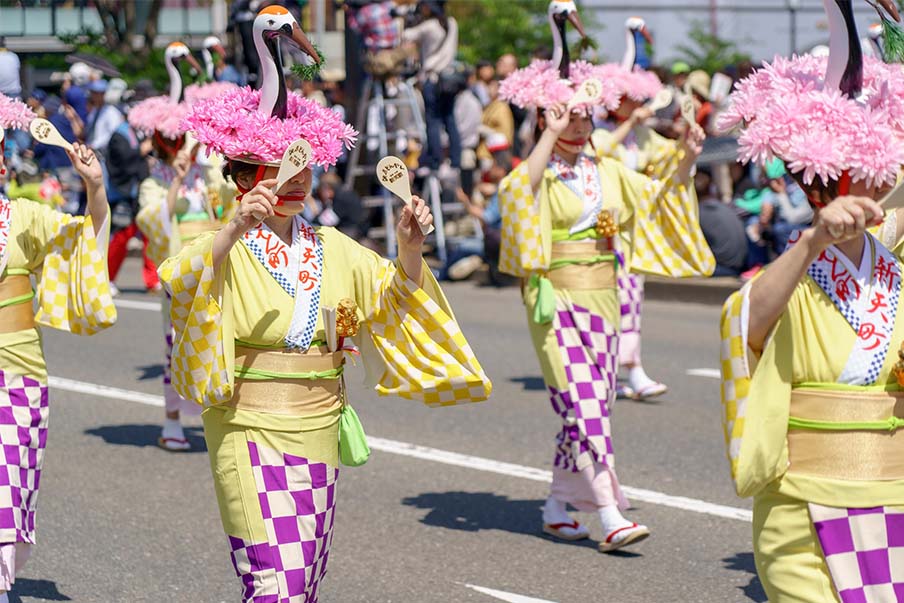
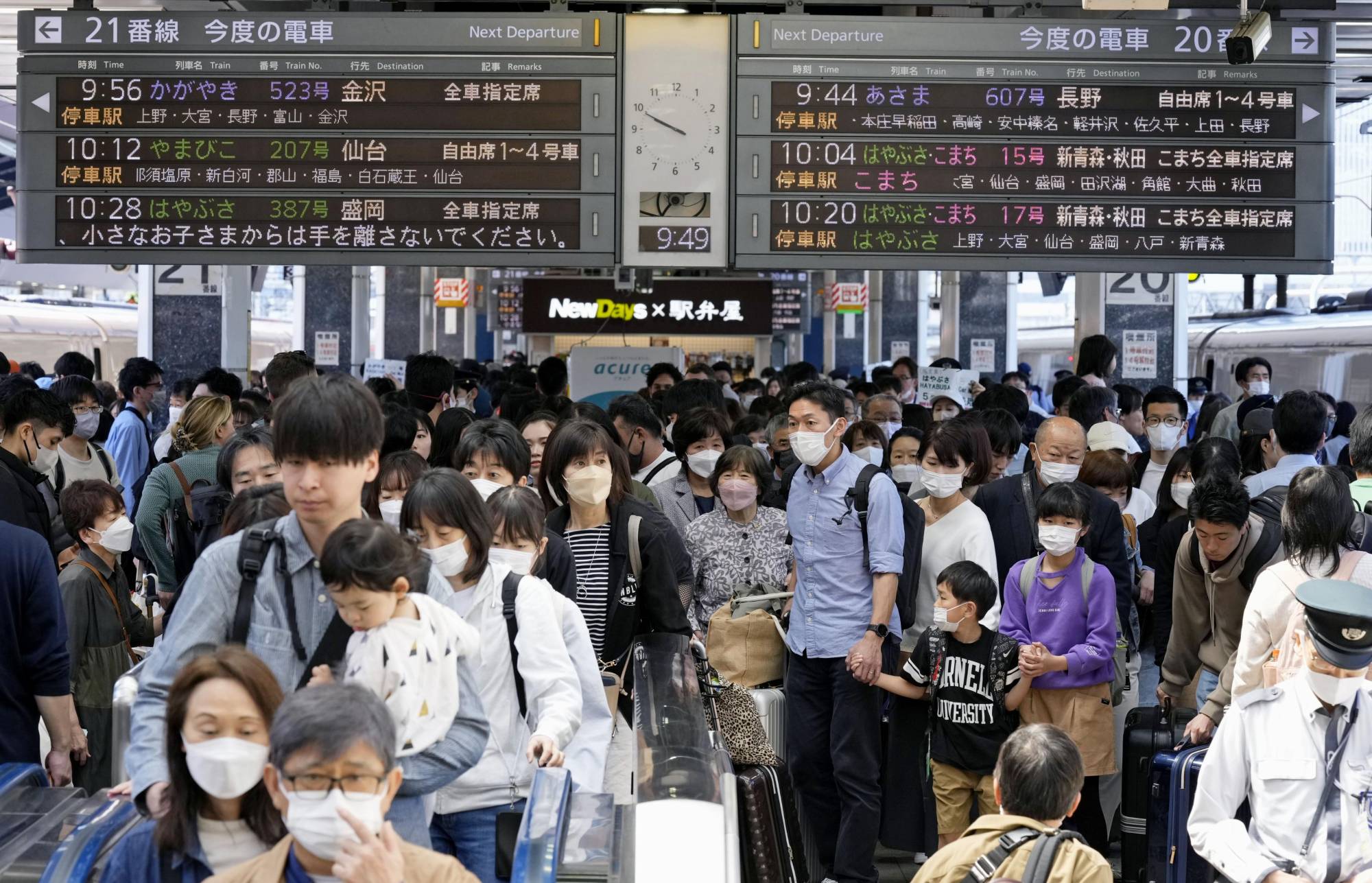
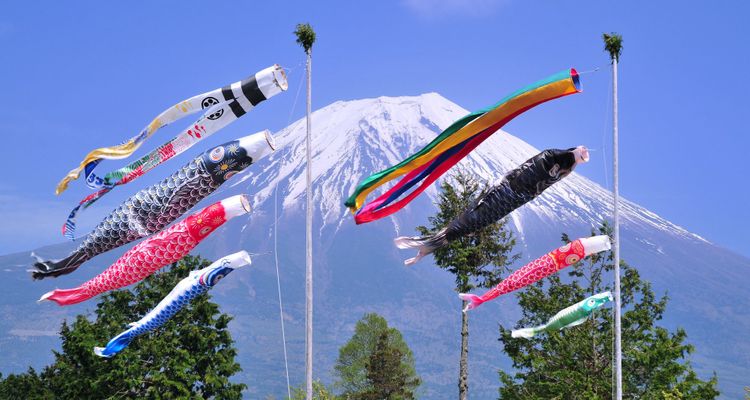
The Significance of Names
Golden Week in Japan consists of a series of holidays, each with its unique nomenclature and significance. Each of these holidays reflects important aspects of Japanese culture and history, and the characters in their names provide additional insights.
The Meaning and History of the Name “Golden Week"

The name "Golden Week" was first used in the context of cinematography. In the 1950s, Japanese cinemas noticed an increase in ticket sales during the period from late April to early May, when several national holidays were observed. The media began to call this period "Golden Week" due to the significant profit that the cinemas brought in, calling it "golden" due to its profitability.
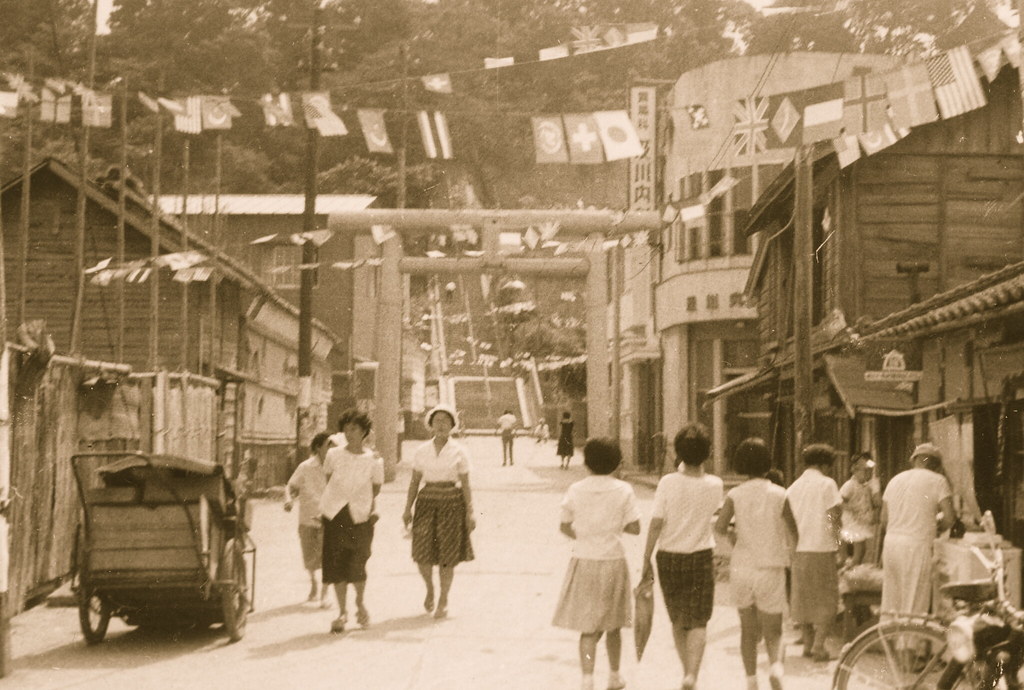
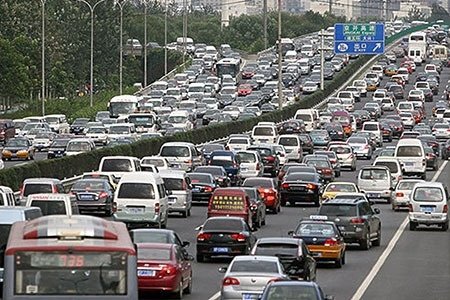
Other Terms Often Associated with Golden Week
 帰省 (Kisei) - "returning home."
帰省 (Kisei) - "returning home."
This term refers to the tradition of returning to one's birthplace or ancestral home to spend time with family. It is a popular practice in Japan during Golden Week, when many people take advantage of the long holiday to visit their loved ones. Often it is the only (or one of two, along with New Year's) times when a Japanese person leaves the city with their immediate family to go to the countryside, to their parents. In practice, this is what “kisei” means – a rare return to aging parents who live in half-deserted villages that due to the phenomenon of “genkai shuraku,” or the depopulation and aging of the Japanese village, no longer serve any other function (economic, agricultural).
 出発ラッシュ (Shuppatsu Rasshu) - "departure rush."
出発ラッシュ (Shuppatsu Rasshu) - "departure rush."
This term is specific to periods of mass departures during holidays in Japan, such as Golden Week. It describes the sudden increase in the number of people traveling from major cities to their hometowns or on vacation, leading to the overcrowding of public transport and congestion on roads and at airport terminals. "Shuppatsu Rasshu" is the moment when many Japanese simultaneously leave the cities, which is one of the characteristic features of Golden Week and a phenomenon widely commented on in the media and requiring long-term preparations in the transport sector.
帰宅ラッシュ (Kitaku Rasshu) - "return rush."
This term refers to the intense traffic heading back to the large cities, which takes place at the end of Golden Week. It is the time when Japanese, who have left the cities for recreational purposes or to visit family, return to their homes, leading to significant congestion on the roads and in mass transport, such as trains and airplanes.
特需 (Tokujū) -"peak demand" (can be said: “season”).
In the context of Golden Week, this term refers to the increased demand for goods and services, especially in the tourism and entertainment sectors. Restaurants, hotels, theme parks, and other tourist attractions experience a significant increase in customer numbers, which is the result of mass travel taking place at this time.
 May Blues (五月病 - Gogatsubyo) - "May Sickness"
May Blues (五月病 - Gogatsubyo) - "May Sickness"
This term describes a psychological or emotional state that may occur after Golden Week or towards its end when people must return to work after a long holiday break. "Gogatsubyo" is sometimes likened to the post-holiday blues in Western cultures and can manifest as a lack of motivation, feelings of melancholy, or fatigue. It is a fairly common phenomenon in Japan, where there is a sudden need to readjust to daily duties and professional demands. This feeling can be particularly intense after days filled with freedom and relaxation, making the return to work emotionally difficult.
Holidays in Golden Week
Showa Day (昭和の日 - Showa no hi)
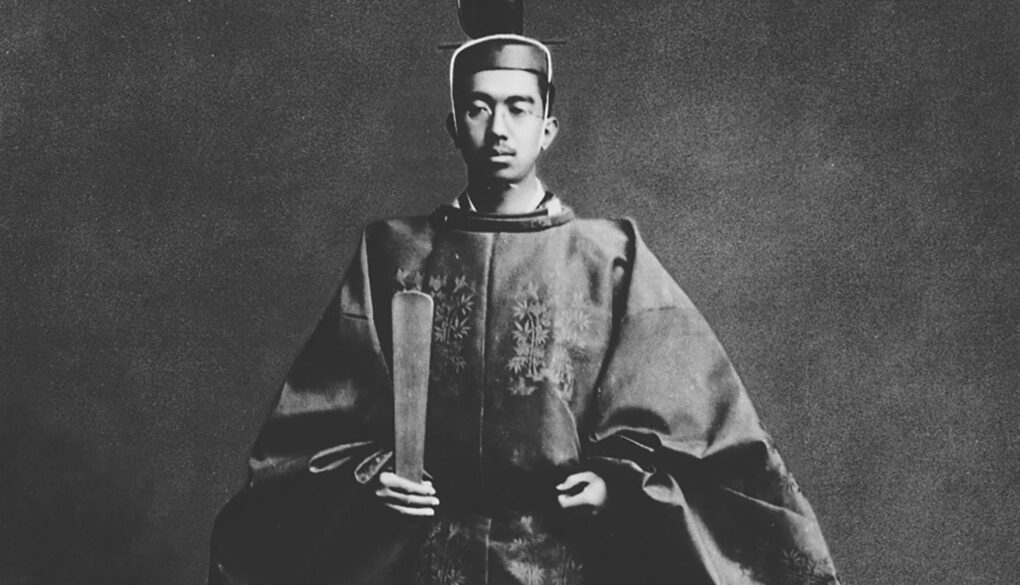
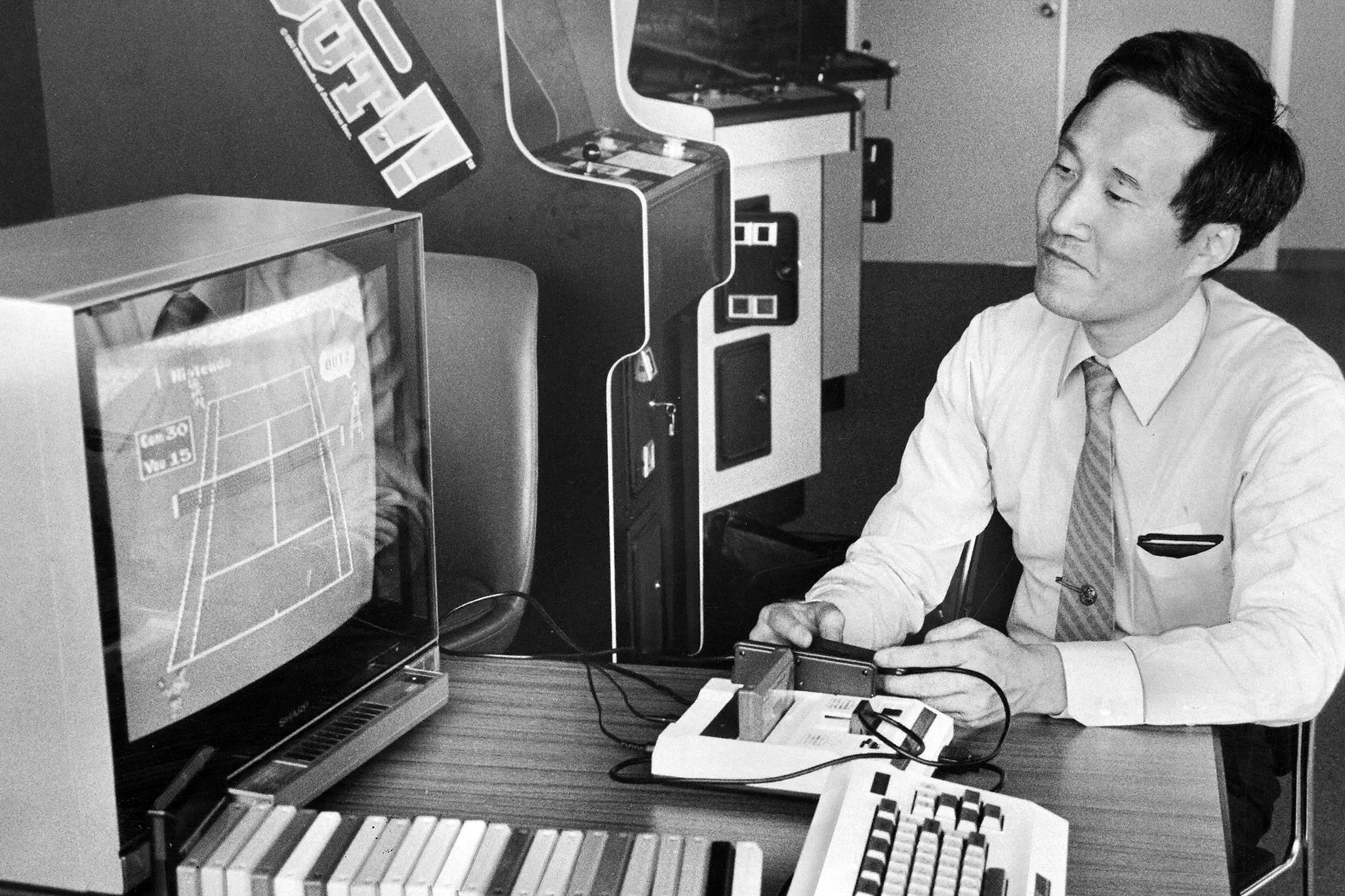
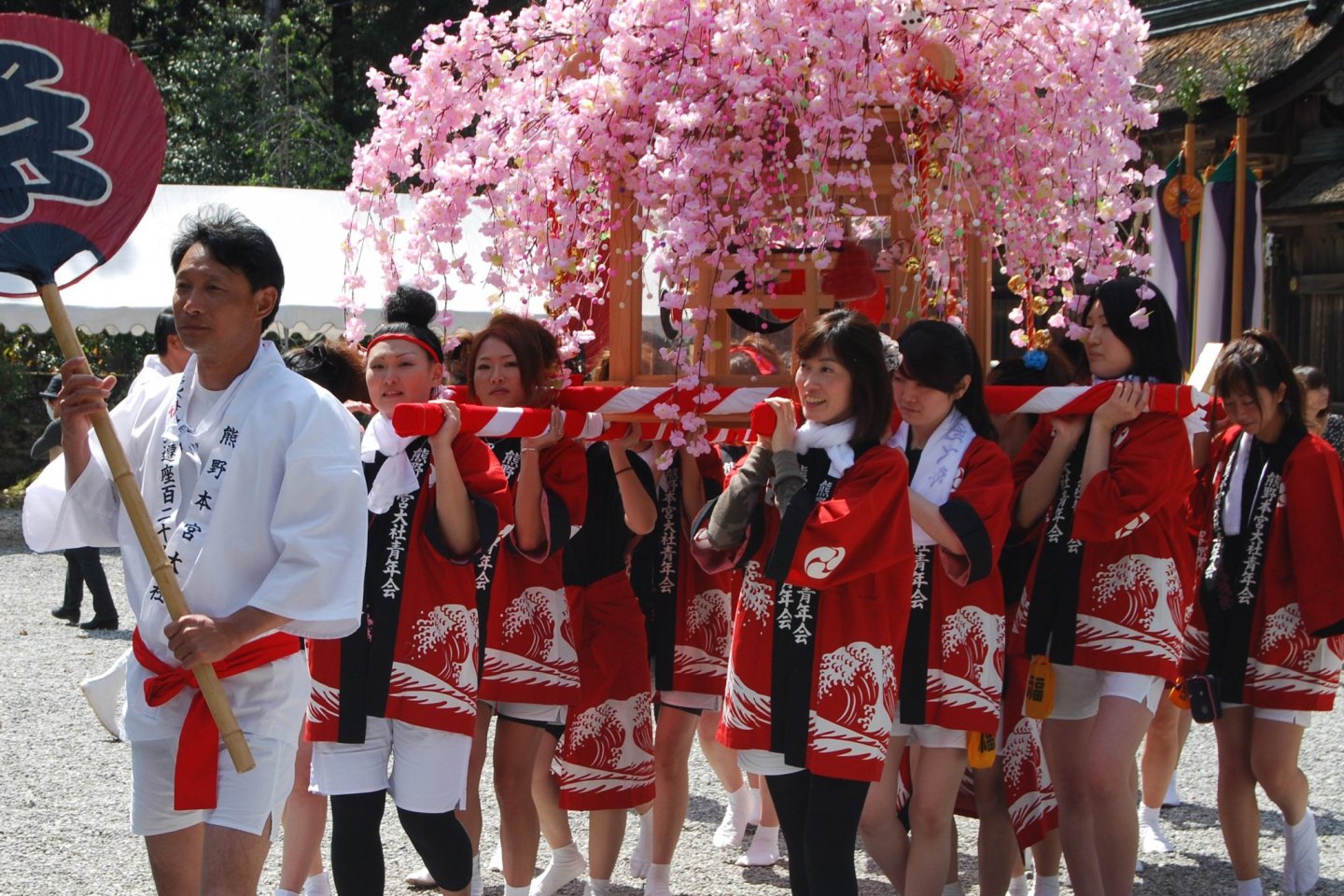
Major ceremonies take place in Tokyo, especially around the imperial palace and at the Yasukuni Shinto shrine, which is a memorial site for Japan's fallen soldiers. These ceremonies include the offering of paper and silk sacrifices, prayers for peace, and speeches commemorating Emperor Hirohito and his impact on the country's history.
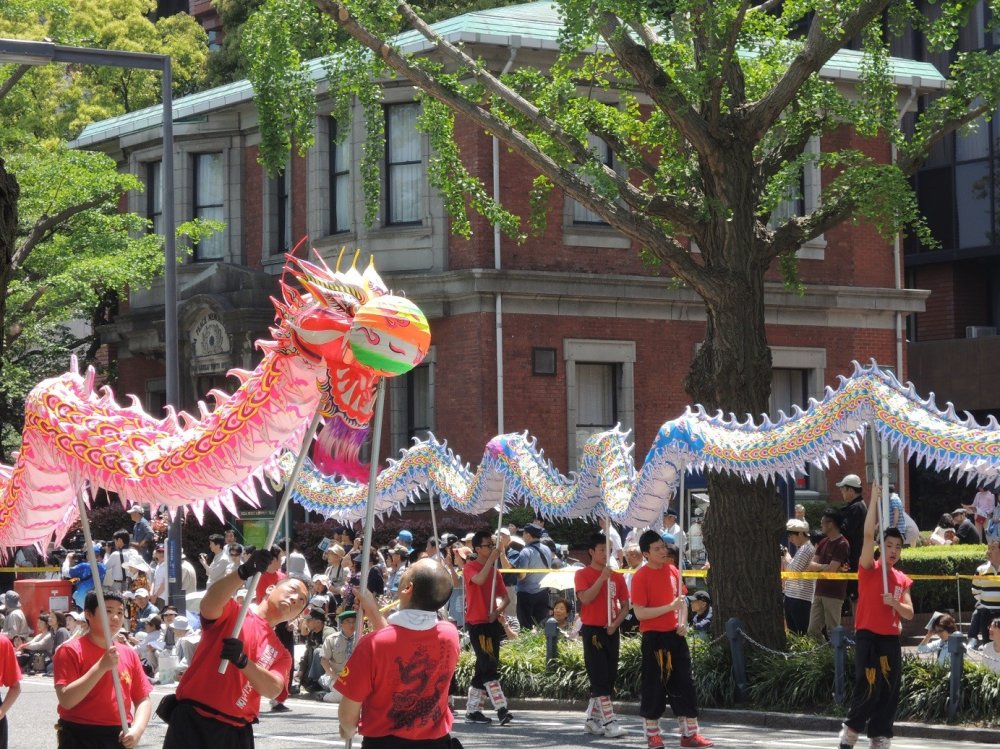
Schools and cultural institutions often organize special educational programs aimed at teaching younger generations about the significance of the Showa era for modern Japan. These programs can include lectures, screenings of historical films, and discussion panels that analyze both the positive and negative aspects of this era, from economic development to wartime conflicts.
On Showa Day, many non-profit organizations and social groups conduct initiatives promoting reflection on historical memory and learning from the past. These activities may include volunteering at museums, conducting workshops for local communities, and media campaigns aimed at preserving and promoting the heritage of the Showa era.
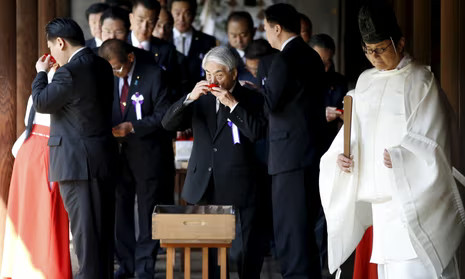
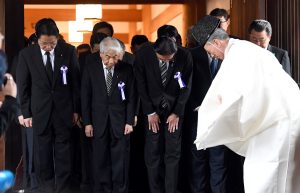
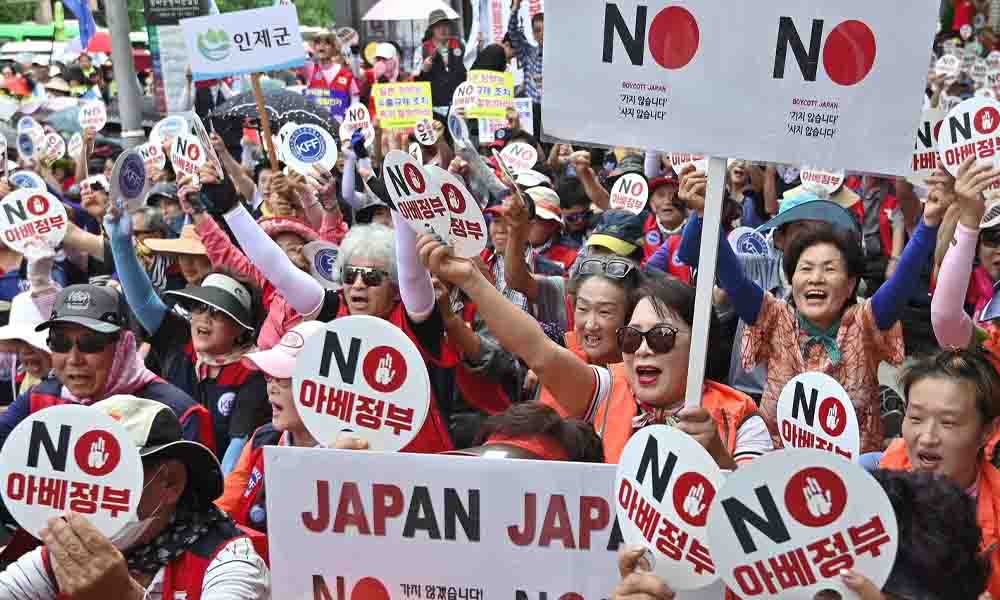
Constitution Day (憲法記念日 - Kenpō Kinenbi)
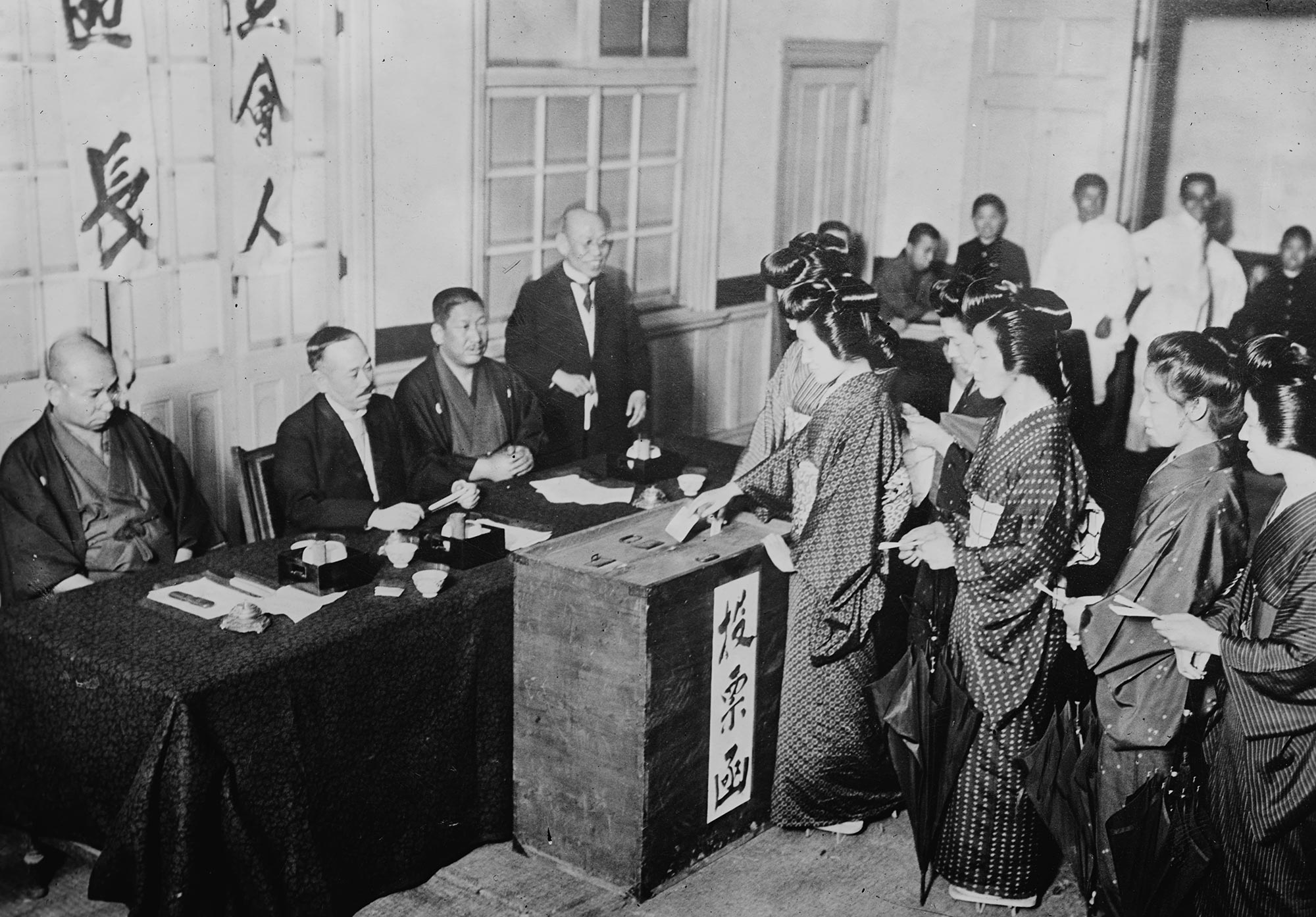
This day commemorates the moment when Japan adopted a new constitution after the end of World War II, replacing an older governance model that had led to military expansion. This Constitution, known as the Peace Constitution, introduced democratic values and committed Japan to an eternal renunciation of war and the threat of force as a means of resolving international disputes.
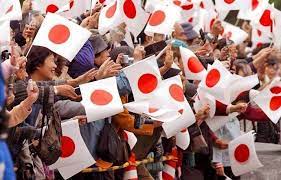
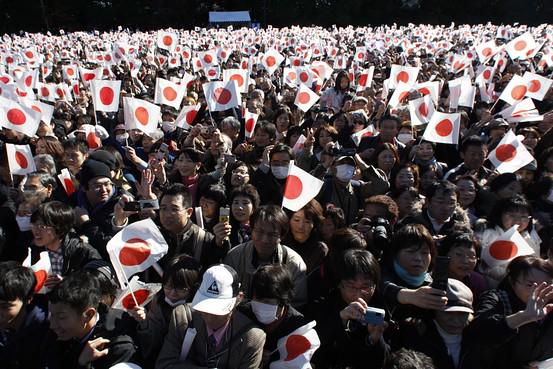
Constitution Day thus becomes an opportunity to reflect on the past and future of democracy in Japan, serving as an important element in civic education and preserving the memory of efforts to build a society based on human rights and the rule of law.
 Greenery Day (みどりの日 - Midori no Hi)
Greenery Day (みどりの日 - Midori no Hi)
Greenery Day, observed on May 4, is part of Japan's Golden Week and was officially established to raise public awareness about the importance of protecting the natural environment and to promote sustainable development. This holiday evolved from the observance of Emperor Showa's birthday, who was known for his interest in nature and botany.
Greenery Day not only celebrates nature but also encourages society to actively participate in environmental protection. This holiday aims to inspire Japanese people to think about their relationship with nature and to highlight the importance of ecology in everyday life.
On Greenery Day, festivals related to nature, tree planting competitions, ecological workshops, and other outdoor activities are organized throughout Japan. Schools and local organizations often participate in reforestation projects and cleaning local parks and forests, and families use this day for trips to national parks to enjoy the beauty and tranquility of nature.
 Children's Day (子供の日 – Kodomo no Hi)
Children's Day (子供の日 – Kodomo no Hi)
Children's Day, observed on May 5th, is one of the Japanese national holidays that form part of Golden Week. This holiday is dedicated to celebrating the health and happiness of children, and it also aims to draw attention to their rights and well-being.
The history of this holiday dates back to ancient times and was initially known as Tango no Sekku, or Boys' Festival, during which prayers were made for the strength and courage of boys. In 1948, the holiday was officially renamed Children's Day, becoming a day to celebrate the happiness of all children.
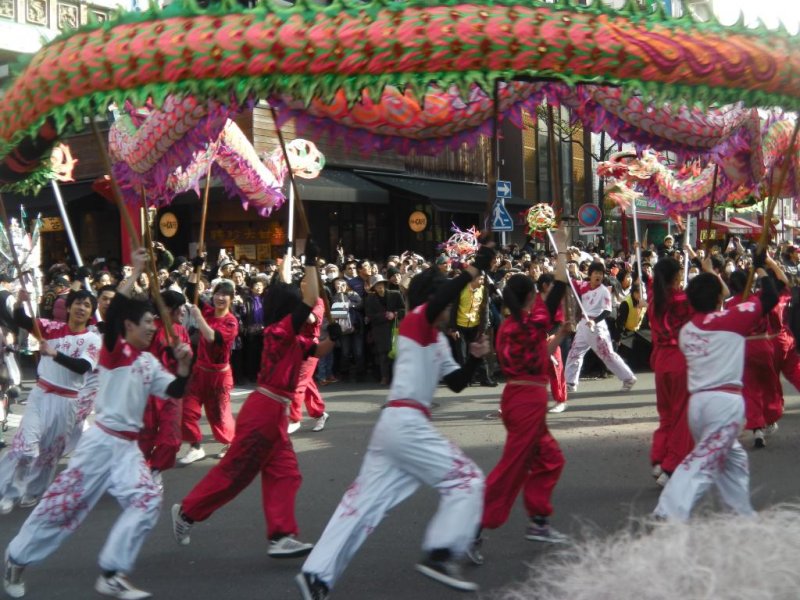
Schools and preschools organize events such as parades and sports festivals, which are intended to develop children's social and physical skills. This day is also an opportunity to remind people of the importance of education and upbringing in the spirit of respect and care for the mental and physical well-being of children.
Children's Day is an important element of Japanese culture and society, and increasingly, it is an occasion to reflect on the future of Japan, where there are fewer children, and for those who are, parents (at least fathers) working from dawn till dusk do not have much time.
Golden Week and Tourism and the Economy
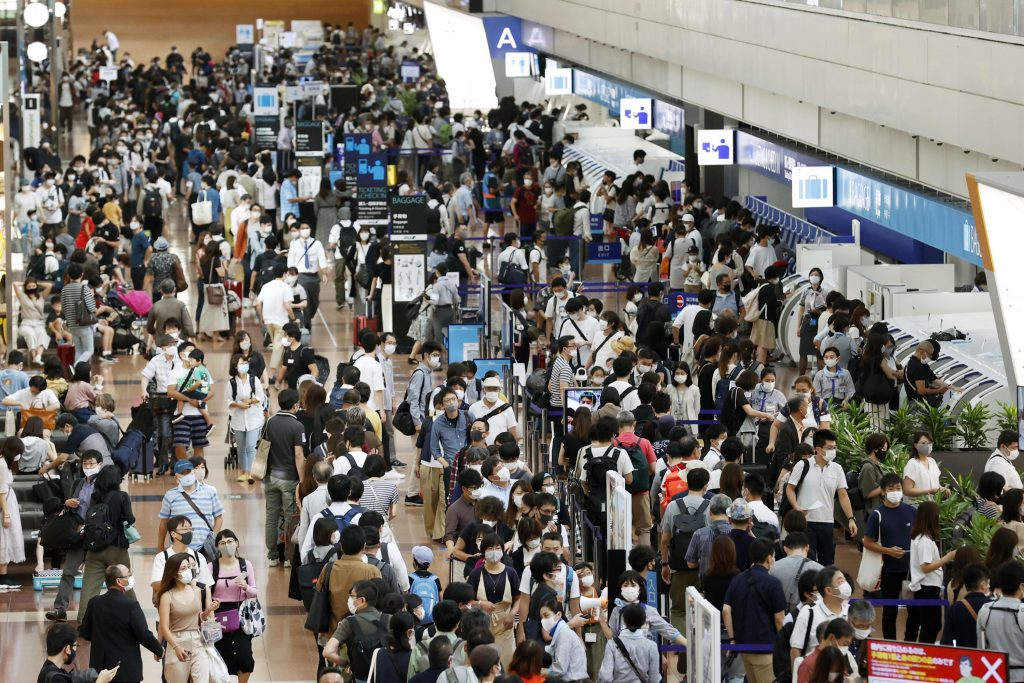
Golden Week is one of the most popular times for trips in Japan, leading to increased tourist traffic in the most famous tourist locations such as Kyoto, Nara, or Hokkaido. International trips to countries like South Korea, China, or Thailand are also popular. During this time, airports and train stations are exceptionally crowded, and plane and train tickets often sell out well before the holidays begin.
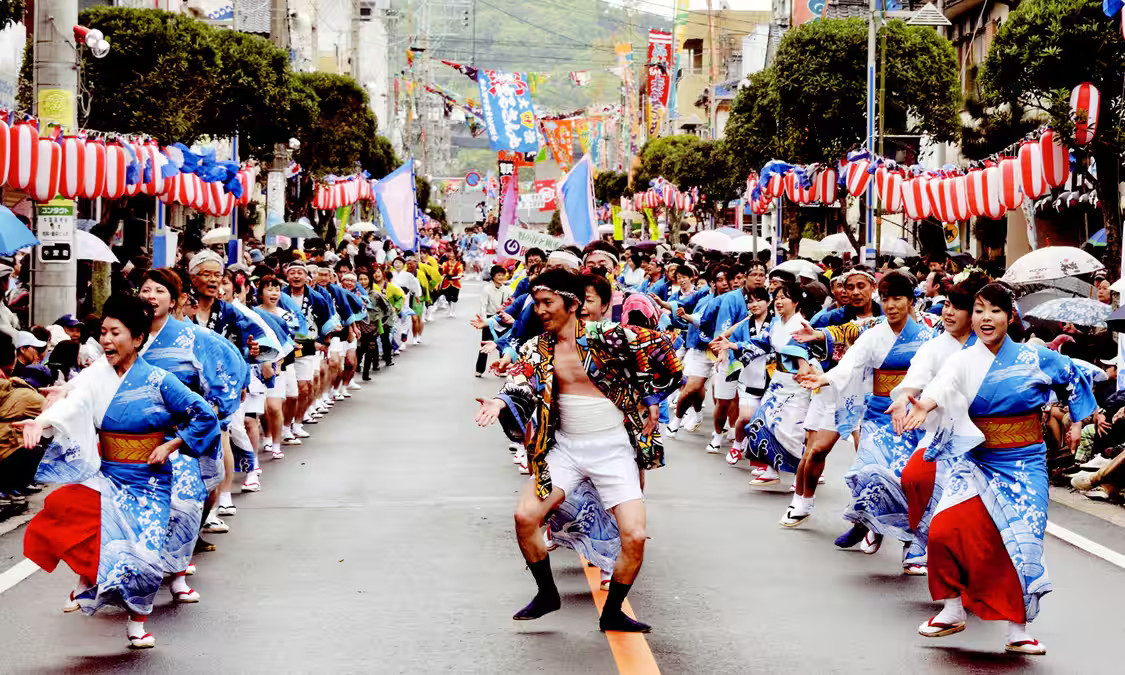
Golden Week in Anime and Video Games
Golden Week, a special time in the Japanese calendar filled with national holidays and extended rest, has become a significant element in popular culture: in anime and video games, where it often serves as the backdrop for critical moments in the lives of the characters. Creators of these works use Golden Week as an opportunity to explore deeper themes such as family, friendship, life goals, and personal transformation. Characters, taking advantage of the extra free time, engage in adventures or reflections, which often lead to changes and development. Let's look at a few examples of how the theme of Golden Week appears in well-known anime and games.
 "Ano Hi Mita Hana no Namae o Bokutachi wa Mada Shiranai" (Anohana) (2011, Tatsuyuki Nagai)
"Ano Hi Mita Hana no Namae o Bokutachi wa Mada Shiranai" (Anohana) (2011, Tatsuyuki Nagai)
"Anohana" tells the story of a group of childhood friends who come together again after the spirit of one of them, Menma, appears asking them to fulfill her last wish. In this anime, Golden Week is a time when the characters have a break from school, allowing them to spend more time together for reflection and confrontation with the past.
"Golden Time" (2013, Yuyuko Takemiya)
The anime "Golden Time" follows the lives of a group of law students, their academic life, and romantic entanglements. Golden Week appears as a critical moment for the plot: it serves as a time of reflection and making important decisions about the future of the characters.
 "Persona 5" (2016, Katsura Hashino)
"Persona 5" (2016, Katsura Hashino)
"Persona 5" allows players to embody a young man who has the power to change the hearts of corrupted adults, to put it succinctly. Golden Week is a time when characters can undertake additional missions and deepen relationships with other characters, influencing the development of the narrative and shaping the game's ending.
 "Usagi Drop" (2011, Yumi Unita)
"Usagi Drop" (2011, Yumi Unita)
"Usagi Drop" is a story about a thirty-year-old Daikichi who decides to adopt Rin, a younger relative of his deceased grandfather. During Golden Week, Daikichi and Rin spend more time together, which strengthens the bonds in their unconventional family and helps build a lasting relationship.
"Tokyo Mirage Sessions #FE" (2015, Shinjiro Takada)
The game "Tokyo Mirage Sessions #FE" combines RPG elements and pop idol, where characters fight an invasion of evil beings from another dimension while trying to become pop stars. Golden Week is used for intensive training and improving their artistic and combat skills, which is crucial for the development of their careers in the show business world.
"Barakamon" (2014, Satsuki Yoshino)
"Barakamon" is a series where a young calligrapher moves to a rural island to find inspiration after a public failure. Golden Week allows the main character to better understand life on the island and get closer to its residents, which is a crucial turning point in his personal and professional development.
"Yakuza 0" (2015, Toshihiro Nagoshi)
"Yakuza 0", a prequel to the Yakuza game series, depicts the early career of Kiryu Kazuma in the criminal underworld. Golden Week is a period when players can experience how life in Tokyo and Osaka changes, offering unique missions and interactions.
Summary
Golden Week in Japan is not only a time for rest and fun, but also an opportunity for personal growth and exploring new horizons. Japanese people use this time to visit families, travel both domestically and abroad, which contributes to economic growth and strengthening social bonds. This period is also significant for the Japanese economy, especially for the tourism and retail sectors, which experience substantial growth due to increased consumer and traveler activity. An interesting aspect of Golden Week is its impact on urban planning and transportation. Due to the increased movement of people, cities like Tokyo experience temporary changes in public transportation organization and greater availability of tourist services. This shows how flexibly Japan can respond to seasonal challenges, ensuring smooth movement and access to attractions.
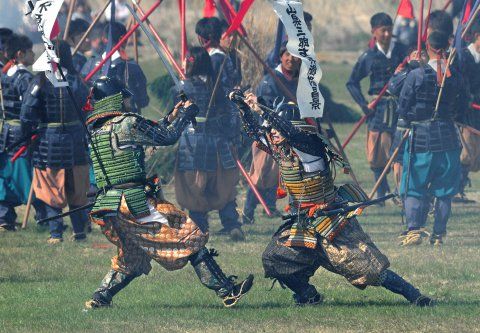
>>SEE ALSO SIMILAR ARTICLES:
Hanami – April Day of Reflection on What You Have Now, Which Will Pass and Not Return
From Tanabata to Gion Matsuri: Japanese Festival Traditions Then and Now
Traditional Japanese Games - A Bridge Between the Real World and Anime
Sakura: The Blooming Heart of Japanese Culture and Anime
"Strong Japanese Women"
see book by the author
of the page
未開 ソビエライ
An enthusiast of Asian culture with a deep appreciation for the diverse philosophies of the world. By education, a psychologist and philologist specializing in Korean studies. At heart, a programmer (primarily for Android) and a passionate technology enthusiast, as well as a practitioner of Zen and mono no aware. In moments of tranquility, adheres to a disciplined lifestyle, firmly believing that perseverance, continuous personal growth, and dedication to one's passions are the wisest paths in life. Author of the book "Strong Women of Japan" (>>see more)
Personal motto:
"The most powerful force in the universe is compound interest." - Albert Einstein (probably)
Mike Soray
(aka Michał Sobieraj)
未開 ソビエライ
An enthusiast of Asian culture with a deep appreciation for the diverse philosophies of the world. By education, a psychologist and philologist specializing in Korean studies. At heart, a programmer (primarily for Android) and a passionate technology enthusiast, as well as a practitioner of Zen and mono no aware. In moments of tranquility, adheres to a disciplined lifestyle, firmly believing that perseverance, continuous personal growth, and dedication to one's passions are the wisest paths in life. Author of the book "Strong Women of Japan" (>>see more)
Personal motto:
"The most powerful force in the universe is compound interest." - Albert Einstein (probably)
Mike Soray
(aka Michał Sobieraj)
Write us...
Ciechanów, Polska
dr.imyon@gmail.com
___________________
inari.smart
Would you like to share your thoughts or feedback about our website or app? Leave us a message, and we’ll get back to you quickly. We value your perspective!
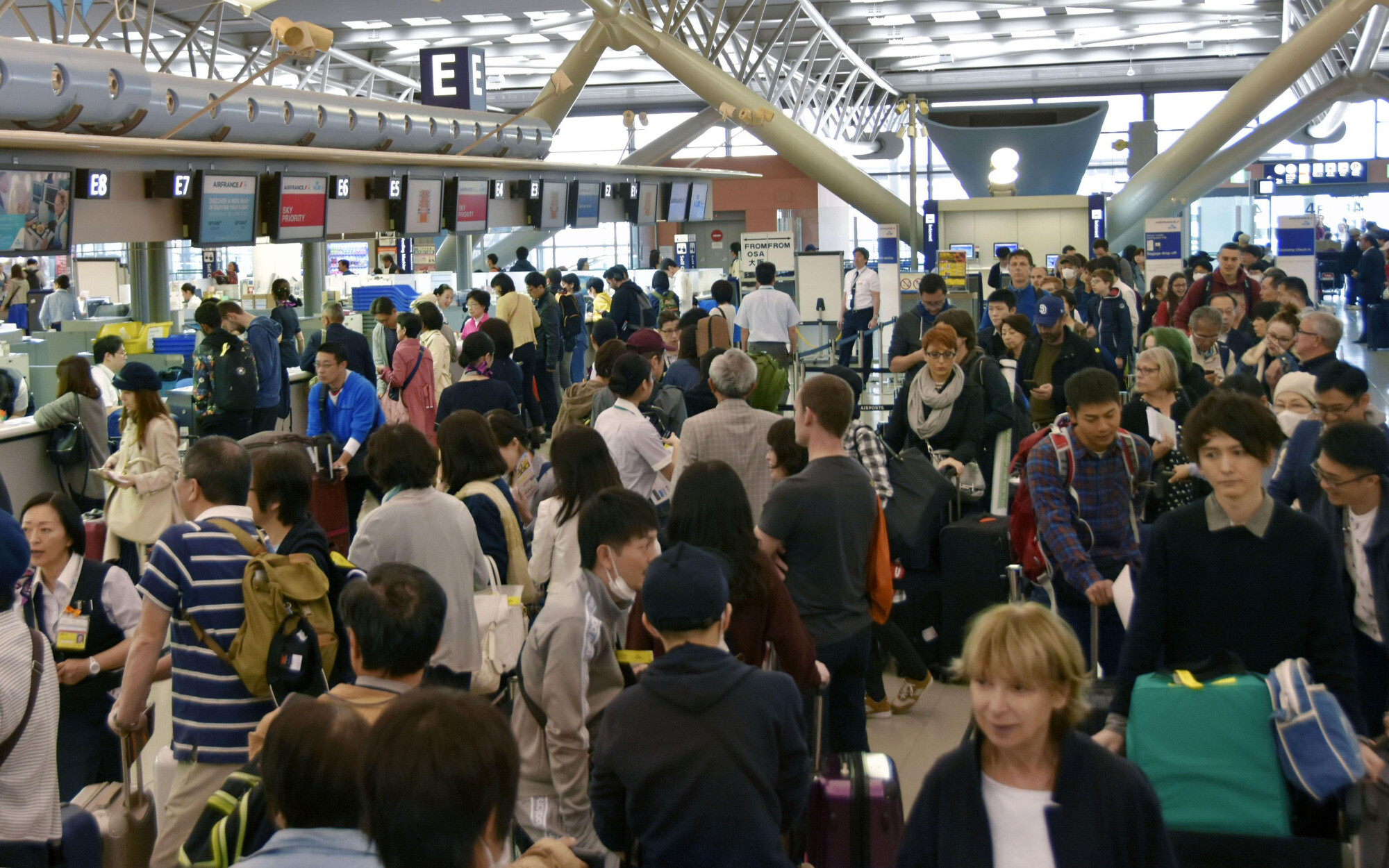 帰省 (Kisei) - "returning home."
帰省 (Kisei) - "returning home." 出発ラッシュ (Shuppatsu Rasshu) - "departure rush."
出発ラッシュ (Shuppatsu Rasshu) - "departure rush." May Blues (五月病 - Gogatsubyo) - "May Sickness"
May Blues (五月病 - Gogatsubyo) - "May Sickness" 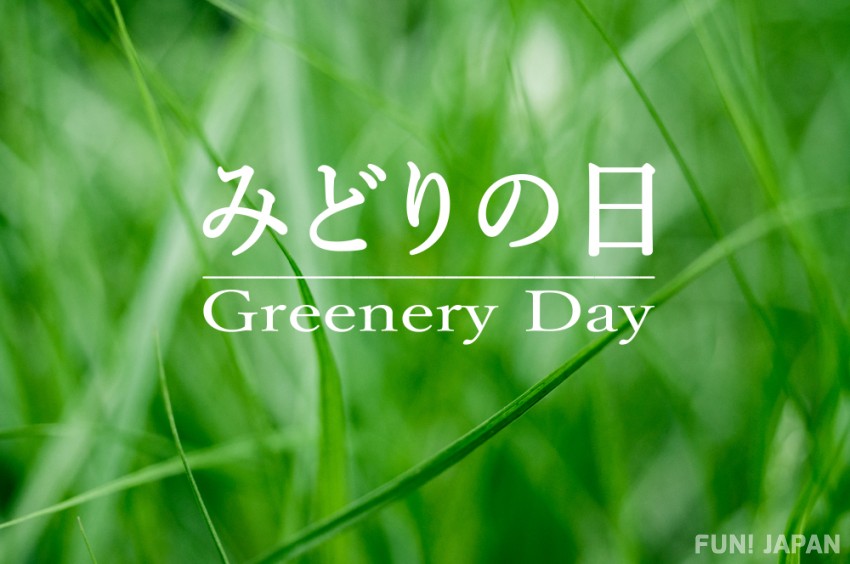 Greenery Day (みどりの日 - Midori no Hi)
Greenery Day (みどりの日 - Midori no Hi) 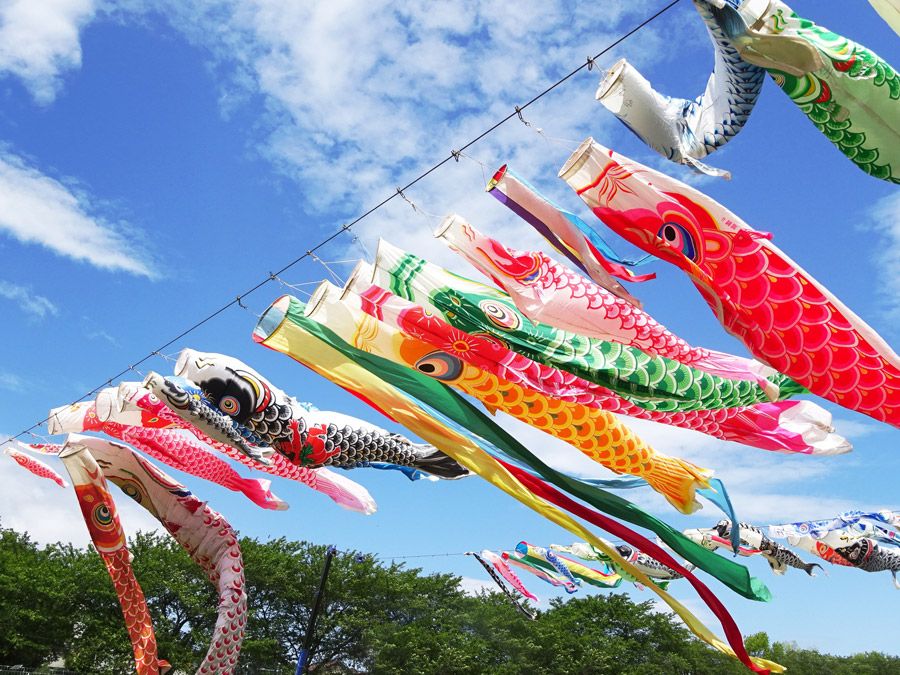 Children's Day (子供の日 – Kodomo no Hi)
Children's Day (子供の日 – Kodomo no Hi)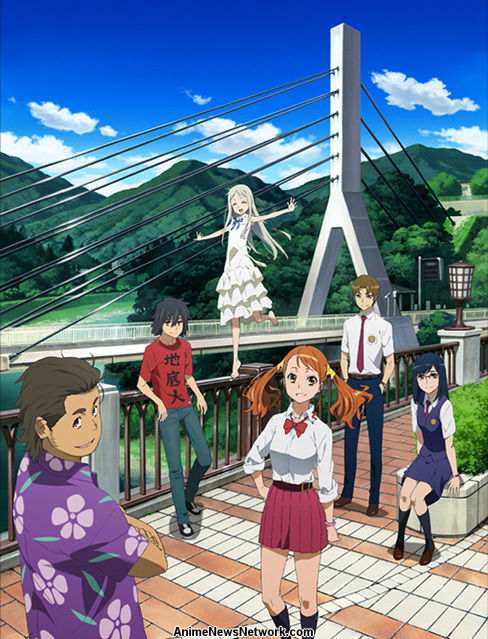 "Ano Hi Mita Hana no Namae o Bokutachi wa Mada Shiranai" (Anohana) (2011, Tatsuyuki Nagai)
"Ano Hi Mita Hana no Namae o Bokutachi wa Mada Shiranai" (Anohana) (2011, Tatsuyuki Nagai)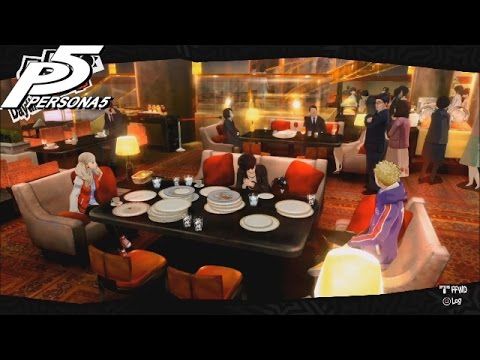 "Persona 5" (2016, Katsura Hashino)
"Persona 5" (2016, Katsura Hashino)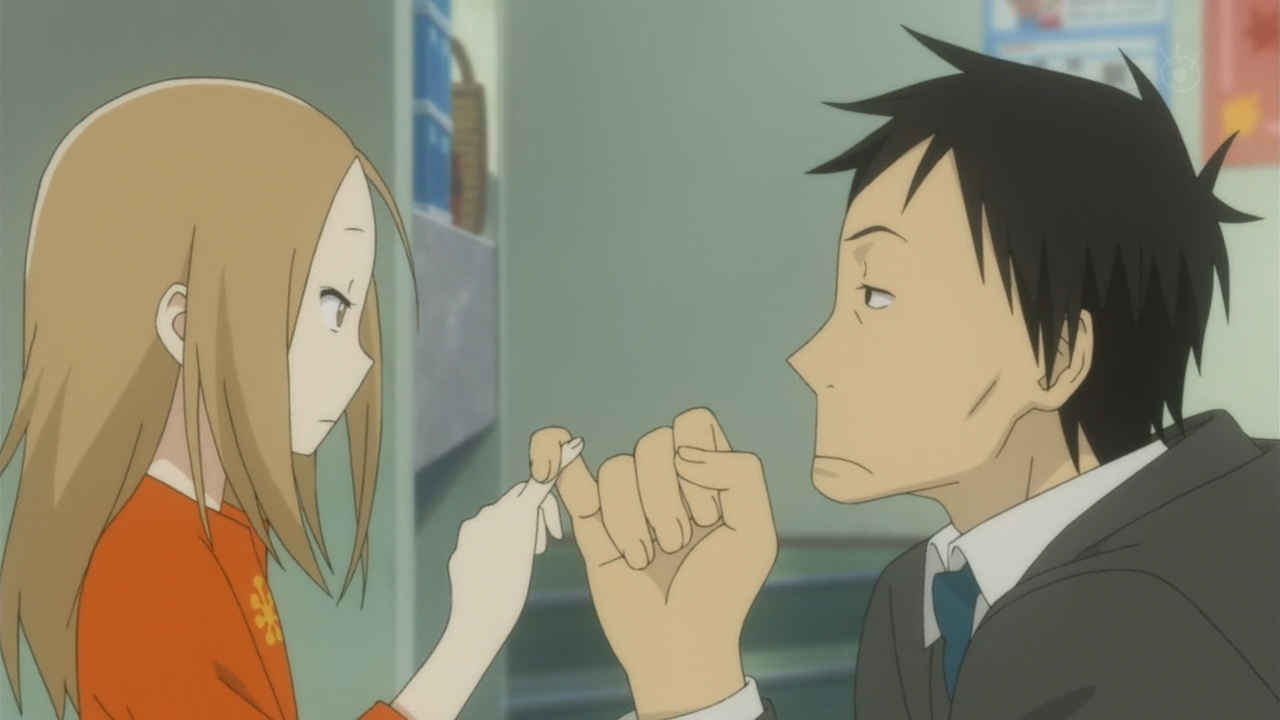 "Usagi Drop" (2011, Yumi Unita)
"Usagi Drop" (2011, Yumi Unita)

